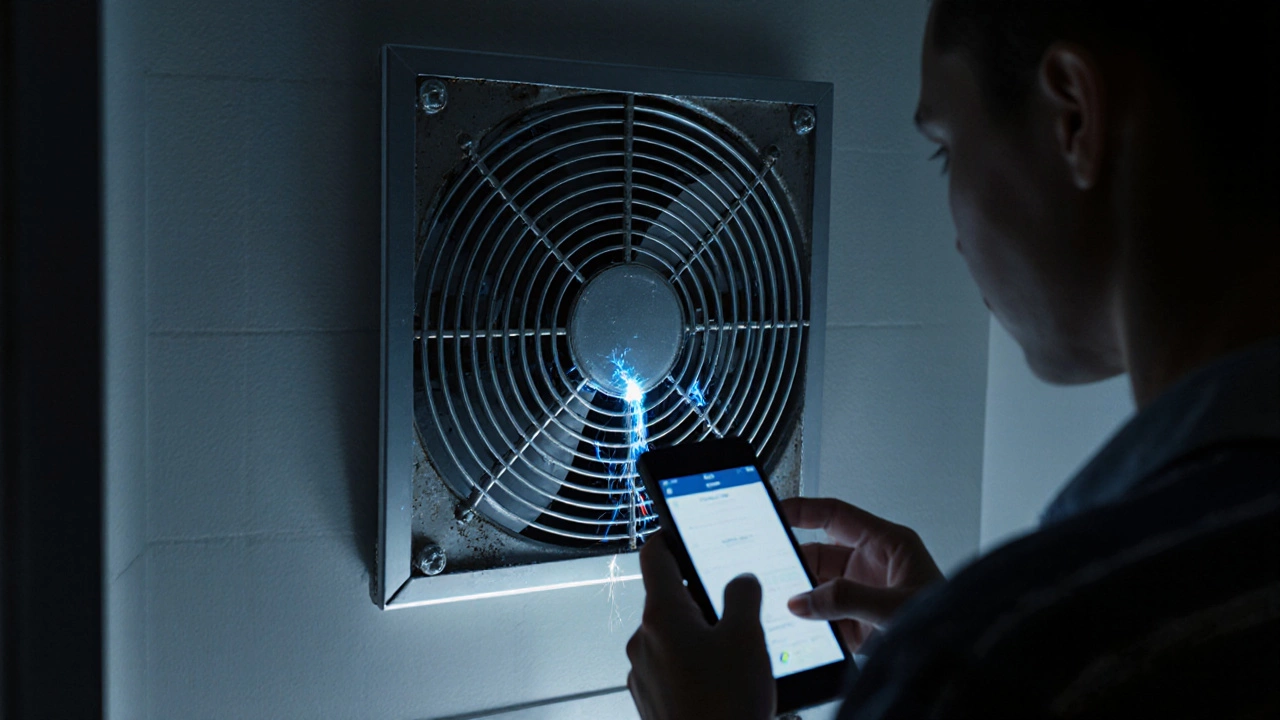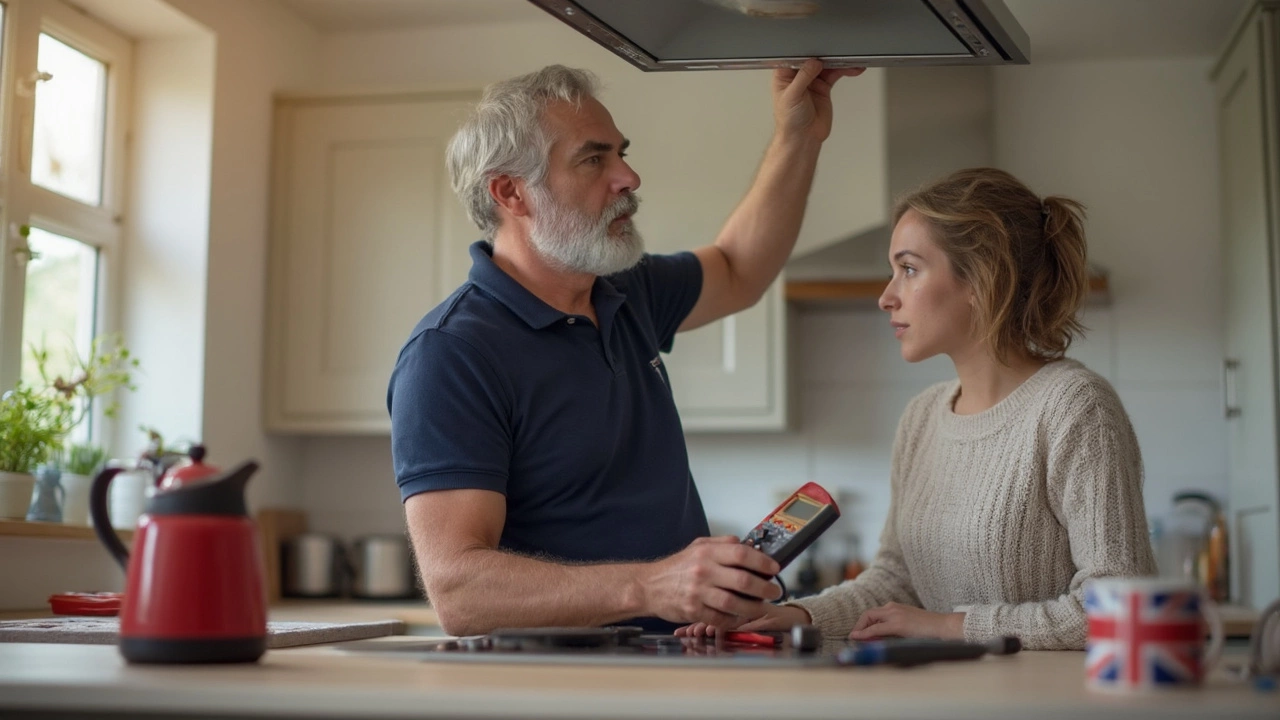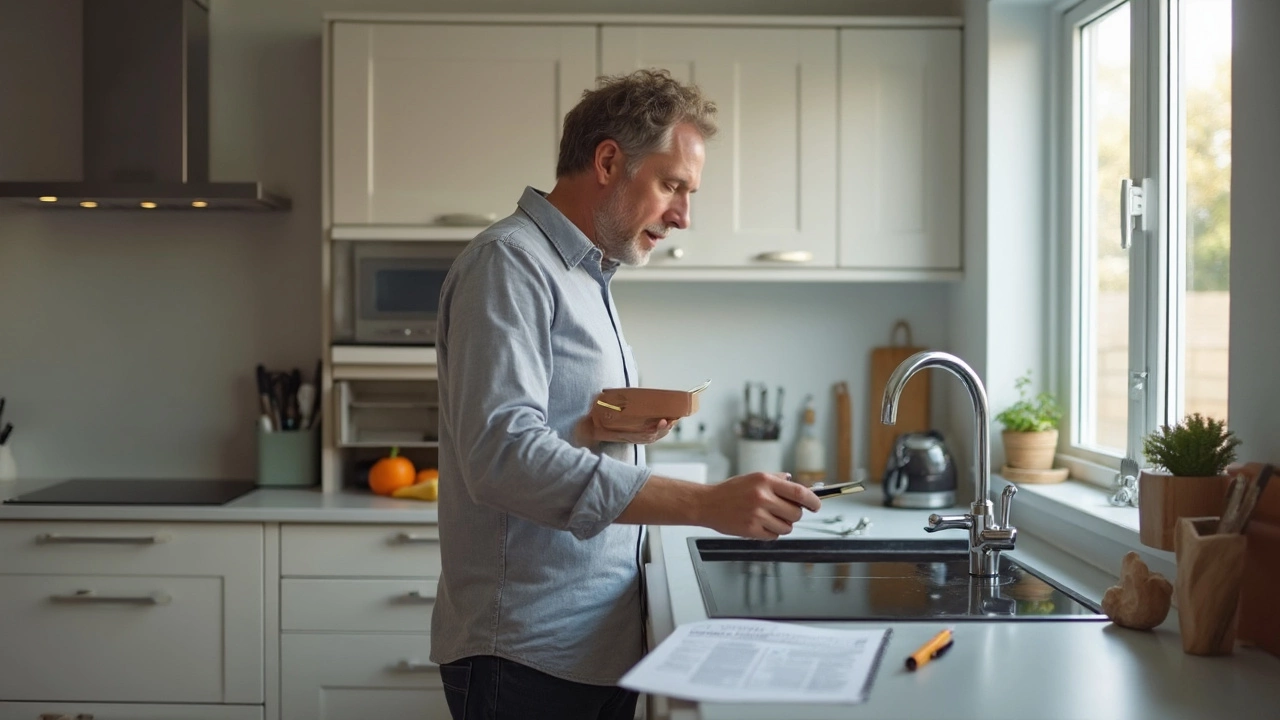
- 22 Jun 2025
- Gideon Thornton
- 0
So, your old electric hob is on its last legs or maybe you’re in the middle of a kitchen revamp. The big question—do you really need to call in an electrician to swap it out, or can you handle this on your own?
This isn’t just about unscrewing a few bolts and plugging something in. Electric hobs, especially the ones you see in most modern kitchens, aren’t like a toaster or a microwave. We’re talking about hardwiring, sometimes directly into your big kitchen circuits—nothing a normal socket can handle.
If you’re not totally sure how your current hob is connected, stop right there. UK regulations (and most landlords’ contracts) are strict about who can alter electrical circuits. They set this up to keep people (and their kitchens) from literally going up in smoke. Regular electrical ovens and hobs draw serious power, and getting a single wire wrong can cause blown fuses, ruined appliances, or much worse—a house fire. Not worth the risk for a couple of quid saved up front, right?
- How Electric Hobs Are Wired Up
- Legal Rules for DIY vs Electricians
- Dangers of Doing It Yourself
- How Much Does a Professional Cost?
- Making the Safe, Smart Choice
How Electric Hobs Are Wired Up
If you’re picturing a simple plug—you can forget it. Most electric hobs need to be hardwired into your home’s power supply because they draw way more power than an average kitchen gadget. These hobs are usually connected directly to a dedicated cooker circuit, and for a good reason.
In the UK, this dedicated circuit typically comes with its own circuit breaker and an isolation switch nearby, usually right on the kitchen wall. This isn’t just for show. The switch lets you cut the power if something goes wrong or if repairs are needed. Here’s a simple breakdown of what happens with electric hob wiring:
- Your mains power feeds the kitchen’s consumer unit (fuse box).
- The consumer unit sends electricity down a dedicated cooker circuit—often a thick 6mm or even 10mm cable because of the high power needed.
- This cable runs to a cooker control unit, which sits on your kitchen wall. It’s often got a red switch and sometimes even a socket built in.
- From the cooker control, another cable runs to the connection point behind (or under) the hob, usually a cooker connection plate on the wall.
- The hob's own wiring connects directly to this plate, tying into your house wiring securely.
If you’re wondering how much power an electric hob uses, check this out:
| Type of Hob | Average Power (Watts) | Required Cable Size (mm²) |
|---|---|---|
| Standard Ceramic | 5,000 – 7,000 W | 6 |
| Induction | 7,000 – 11,500 W | 10 |
Mismatching cable sizes or fuses with the hob’s power draw can cause overheating, power cuts, or even melted wires behind your wall. That’s why regs say the work isn’t just "plug-and-play." If you mess this up, you risk voiding your insurance or wrecking your kitchen.
The biggest takeaway: electric hob replacement is a job for someone who really knows what they’re doing—because the wiring is more intense than most people expect.
Legal Rules for DIY vs Electricians
This bit isn’t up for debate—the law is really clear about electrical work at home, especially with big power-hungry appliances like electric hobs. In the UK, the main rulebook is called Part P of the Building Regulations. It covers how electrical jobs must be done safely. Any work that messes with your kitchen wiring or consumer unit (that’s your fuse box) usually counts as “notifiable work,” which means you can’t just do it and hope for the best.
Here’s the key thing: replacing or installing an electric hob often means dealing directly with hardwired circuits. For most people, this is strictly a job for someone who’s “competent”—and that usually means a certified electrician. If an unqualified person does it, and something goes wrong, your home insurance might not cover any damage.
- If you own your place, DIY electrical jobs done wrong can make selling your house harder later. Surveyors will check for proof that any big electrical work was checked and certified.
- If you rent, your landlord will almost always demand a professional does any work tied to the kitchen wiring or main fuse box.
- For new wiring and most replacements, the law says you have to notify your local council’s building control. But if you hire a Part P-registered electrician, they sort out all the paperwork for you automatically. Big stress reliever.
To put it simply, swapping a lamp is fine; replacing an electric hob without qualifications isn’t. Messing with this stuff breaks the law and your guarantee—and risks your safety!
| Task | DIY Allowed? | Legal Requirements |
|---|---|---|
| Plug swap on small appliance | Yes | Simple, no need for notification |
| Direct-wired hob replacement | No | Must be certified, notify council or use registered electrician |
| Adding new cooker circuit | No | Only by qualified electrician, notifiable work |
You might see people online bragging about DIY hob installs. They got lucky—or they’re not telling you the full story. Stick to the rules: if you’re not a pro, pick up the phone instead of a screwdriver.
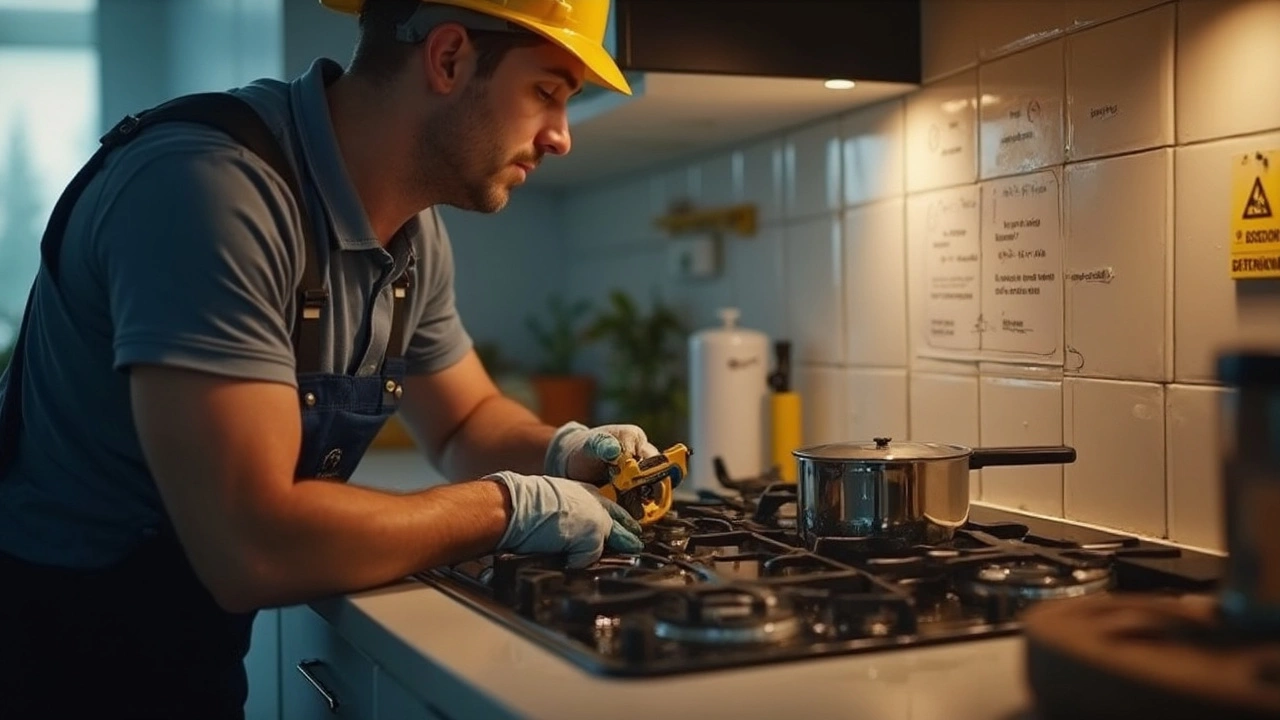
Dangers of Doing It Yourself
Thinking about swapping your electric hob without professional help? Here’s where things can go sideways.
First off, electric hobs usually run straight from a dedicated, high-power circuit—way more powerful than your average plug socket. This means you’re dealing with live wires that can deliver a shock strong enough to land you in the hospital, or worse. According to data from Electrical Safety First, around 350,000 people in the UK get a serious electrical shock every year, often due to DIY attempts.
Here’s what can happen if you try to DIY:
- Electric hob replacement mistakes can cause short circuits, which might fry the hob—or start an electrical fire. Kitchens are the number one location for house fires started by faulty wiring or appliances.
- Improper connections might leave live wires exposed behind the unit. That’s just waiting for trouble, especially if you have kids or pets.
- If you get something wrong, your warranty goes out the window. Most manufacturers and insurers won’t cover damage if the installation wasn’t done by a qualified pro.
- Trying to fix a wiring mistake after the fact costs way more than hiring someone properly in the first place. Some repairs can set you back hundreds just to undo a small error.
To see what could go wrong, here’s a quick look at the risks from a recent year:
| Risk | UK Cases (2023) | What Can Happen |
|---|---|---|
| Electric shocks during installation | 35,000+ | Injury, burns, heart issues |
| Kitchen fires from faulty wiring | 5,800+ | Property damage, insurance loss |
| Damaged circuits from bad installs | Over 15,000 | Expensive repairs |
Remember, you’re also on the hook legally. Even a single mistake could mean your insurance company refuses to pay out if there’s a fire. The money you save upfront just isn’t worth the risk to your home or your health.
How Much Does a Professional Cost?
Let’s talk numbers, because nobody likes a surprise bill. Getting a professional to swap out your electric hob is not as expensive as you might think, and the peace of mind is worth every penny.
If you call a certified electrician in the UK to replace a built-in hob, you can expect to pay anywhere from £60 to £160 for the labour. This price usually covers disconnecting the old unit, checking the wiring, and hooking up the new hob, but it doesn’t include the cost of the hob itself. If extra work is needed—like upgrading your wiring or fuse box—it’s going to cost more. Sometimes you’ll see call-out fees, especially for quick jobs. Always ask if that’s included up front.
Most jobs take one to two hours, especially if it’s a straight swap for something similar. Electricians will bring the right tools and will test everything with proper safety gear—stuff you probably won’t have lying around the shed.
- If your new hob has different power requirements than your old one, the electrician might need to upgrade your circuit. This can add £50 to £200 to the bill, depending on what’s needed.
- If you already have a cooker circuit (32A or similar), the cost stays at the lower end. No extra wiring needed, no hassle.
Some installers offer “fit and test” deals for people who buy hobs from them. Always check if your retailer has a recommended installer—it could cut your total bill. Whether it feels steep or not, paying a pro covers you if something goes wrong. A botched electric hob replacement can damage your kitchen or even void your insurance.
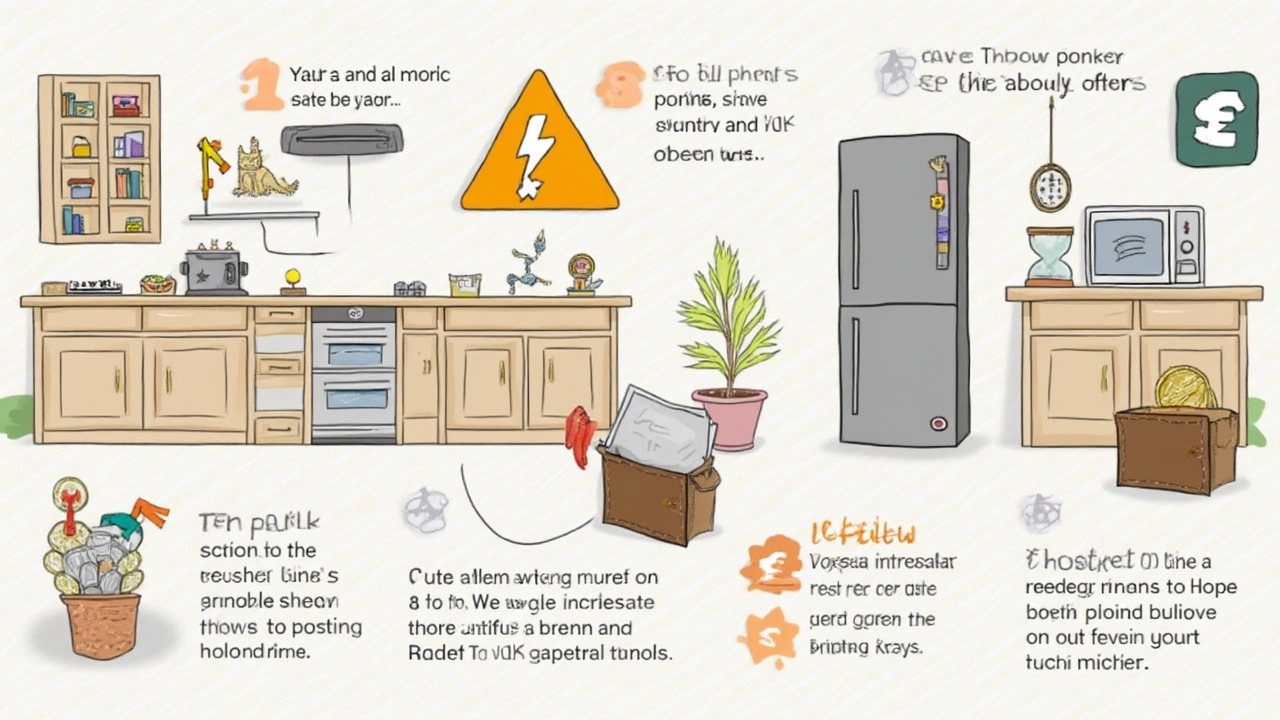
Making the Safe, Smart Choice
If there’s one thing you really don’t want to gamble with, it’s electrical safety in your kitchen. Swapping out an electric hob sounds simple, but the risks are real and mistakes can be costly. UK electrical safety data from 2024 counted over 2,800 kitchen fires started by faulty wiring or DIY appliance installs. That’s not the sort of stat you want to be part of.
Now, the law is also pretty clear. In England and Wales, Part P of the Building Regulations says that anyone who works on household electrics must make sure the job is safe, and certain work (like in the kitchen) is notifiable to your local council. Skip the paperwork or bodge the install and you could void your home insurance, or even face a fine. Scotland and Northern Ireland have similar strict rules.
When you bring in a pro, you get more than just peace of mind. A qualified electrician will:
- Check your circuit can handle your new hob’s power requirements
- Fit the right isolator switch and fuse (no guessing on amp sizes!)
- Test all connections and certify the installation for insurance
- Spot any dodgy wiring or other hazards lurking behind your old hob
Cutting corners here just isn’t worth it. Yes, there’s a cost for hiring someone certified, but you’re paying for safety, a valid certificate, and no worries if you ever need to prove the work was done right. Check out some actual numbers:
| Task | Average Cost (2025, UK) |
|---|---|
| Electric hob installation (standard) | £80 - £130 |
| Full electrical safety check | £120 - £180 |
| Repairs to faulty kitchen wiring | £60 - £250+ |
If money’s tight, ask for quotes from several NICEIC-registered electricians so you know what’s fair. Never be shy about asking what qualifications they have. And if a ‘friend of a friend’ offers to do it cash-in-hand, keep in mind: no paperwork, no comeback if something goes wrong.
To sum up: if you want to protect your home, save headaches, and keep your kitchen safe, always call in a pro for anything involving your electric hob replacement. It’s the smart play every time.


